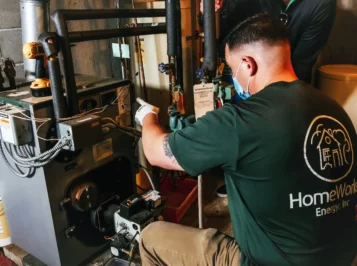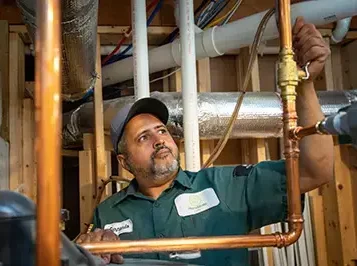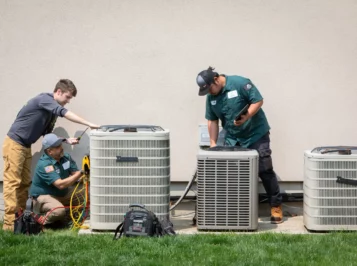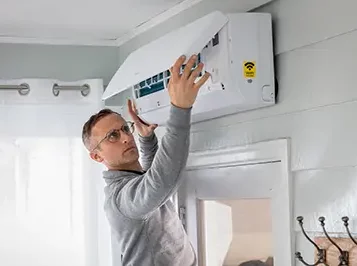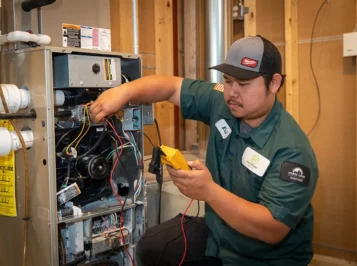HomeWorks Energy CEO Martijn Fleuren gives an overview of the Mass Save® program:
By now, most Massachusetts residents have heard of Mass Save® rebates and incentives. Many people know it’s about saving energy and lowering our carbon footprint as a state, but it’s not always clear how the program works or why the utilities participate. Here is an overview of how the program operates, particularly focusing on its structure and rationale.
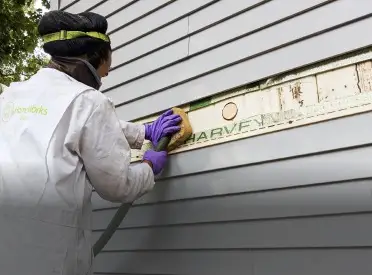
How is Mass Save® Structured?
The Mass Save® Program operates on a consumer-funded model, where utility ratepayers contribute to a fund managed by the utilities through an energy-efficiency charge on their bills. This fund is strictly allocated towards energy efficiency and greenhouse gas reduction initiatives, aligning with Massachusetts’ 2050 Decarbonization Roadmap. Utilities, mandated to achieve state-set goals, engage Lead Vendors such as CLEAResults and Abode to administer these programs. These Lead Vendors, in turn, contract with local Contractors (HPCs, IICs, etc.) who perform the actual energy efficiency upgrades and services. The funding essentially starts with the homeowner and ends up back with the homeowner after they use the program.
Why Do Utility Companies Participate in Mass Save®?
You might wonder why utilities participate in such a program. Isn’t it counterintuitive for them to encourage customers to use less of their product? The key point here is that the funds utilized are not directly from the utilities‘ coffers nor state taxes; rather, they originate from consumers themselves, so it’s not really their money. Utilities also stand to gain performance incentives if they successfully meet their energy efficiency targets, providing them with a financial motivation to excel in these programs.
Services We Provide in Massachusetts
How Does Mass Save® Help the Future of Sustainability?
From the perspective of the utilities, investing in energy efficiency makes strategic sense. The demand for energy continues to rise, particularly during peak times, necessitating substantial investments in new infrastructure like power plants and pipelines. These investments typically involve lengthy payback periods, often spanning decades.
Utilities recognize that the future of energy is shifting towards renewables, making long-term investments in traditional infrastructure less viable. By promoting energy efficiency now, utilities can delay the need for costly new infrastructure, potentially saving trillions of dollars in the long run.
Moreover, global trends towards electrification underscore the urgency for utilities to adapt. Governments are increasingly mandating shifts towards electric heating, cooling, and transportation as part of broader climate goals and national security strategies. Utilities, therefore, must position themselves as part of the solution to global challenges rather than contributing to them.
The Mass Save® Program, like most other energy efficiency programs, represents a collaborative effort that leverages consumer funds to achieve significant energy efficiency gains, aligning with both state mandates and global trends toward sustainability. For utilities, the program offers a strategic pathway to efficiently manage future energy demands while securing their role in a rapidly evolving energy landscape.
Ready to Learn More about Mass Save®? Contact HomeWorks Energy Today!
Of course, none of it works without the boots-on-the-ground solution that HomeWorks provides. We educate local communities, find opportunities, assist homeowners, and perform services to achieve the targets these programs are built for.
If you haven’t taken advantage of Mass Save®‘s generous rebates and incentives for home energy upgrades, now is the time to start saving energy and money! Give our team a call today at (781) 305-3319 or schedule a No-Cost Home Energy Assessment online at homeworksenergy.com.


